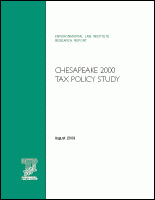National Environmental Policy Act (NEPA)
Passed by Congress in 1969 and signed into law on January 1, 1970, the National Environmental Policy Act (NEPA) broke new ground as the first major Federal legislative effort to incorporate environmental considerations into all government decision-making. 42 U.S.C. §§ 4321-4347. NEPA fundamentally altered how lawmakers and regulators approached human impacts on the natural world by requiring federal agencies to prepare Environmental Impact Statements for all major Federal actions significantly affecting the environment.






